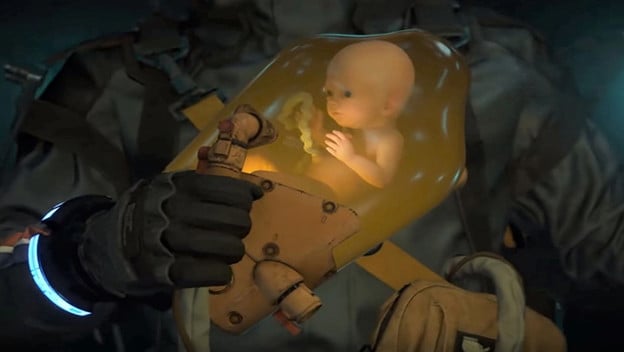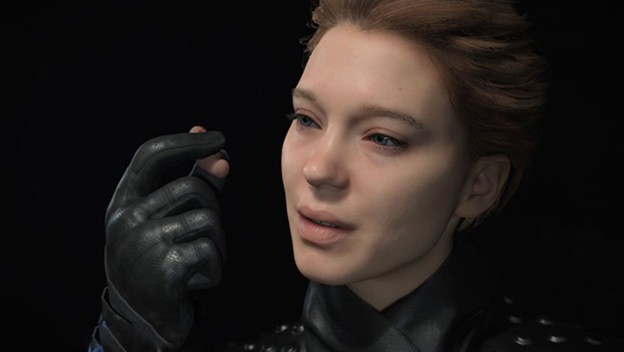Death Stranding , Hideo Kojima’s upcoming video game, has gone gold and the Internet has been going wild with excitement. It doesn’t matter that we still know very little about the game. All that matters is that it’s a Kojima game. It looks strange. It looks thought-provoking. It looks [insert insightful praise here]. As long as it is Kojima’s baby (pun intended), then the game is sure to be utterly amazing, and those who don’t like it simply aren’t smart enough to see its beauty.
I know a thing or two about fanboy/fangirlism. I like Kingdom Hearts , for example. I’ve played all of those games on all of its various consoles and handhelds. I’ve defended why the games hop platforms. I’ve defended the convoluted story. But at the same time, I know how ridiculously convoluted the story is. I know how frustrating the gameplay can be across the games. And I’ll freely admit all of that.
What we see with Kojima and his games, however, goes beyond fanboyism. It’s a downright obsession.
The lengths fans go to explain his brilliance always astounds me. It doesn’t matter how discombobulated his stories are. It doesn’t matter how sexist his characters are or how they’re needlessly hypersexualized to the point there are gifs of Quiet’s jiggle physics. It doesn’t matter what words he invents. ( Revengeance , seriously?).
The reason why it doesn’t matter is because his fans love throwing around words of praise that make him, and his games, seem bigger than they are. I’ve grown to loathe both.
Kojima is often called an auteur for his work, which is traditionally a term for a filmmaker, such as Martin Scorsese or Quentin Tarantino. An auteur is “a filmmaker whose individual style and complete control over all elements of production give a film its personal and unique stamp,” like Scorsese and Tarantino. When you see one of their films, you just know it’s one of theirs. They have a unique style, subject matter, and presentation that makes their films unique from any other director.
To that extent, I 100% agree that Hideo Kojima is an auteur with video games. You don’t have to know a game is his to quickly figure out that it is his. When you see any trailer for Death Stranding , you don’t have to already know it’s a Kojima game beforehand to know that Death Stranding is one.
However, being an auteur for your work doesn’t automatically mean that your work is flawless, free from criticism, or even good. Whether Kojima’s fans mean to or not, they use “auteur” as a way to insist upon his work’s perfection.

Which brings us to the next term I absolutely hate, but it’s how Kojima is an auteur: ludonarrative dissonance. Ludonarrative dissonance is “conflict between a video game’s narrative told through the story and the narrative told through the gameplay.” You can see how this describes Kojima’s style to a T. It’s also the “perfect” shield to hold up against Kojima’s crazy storytelling.
When we only had three trailers for Death Stranding , with none of them explaining the story or point of the game at all and all of them showing weirdly disturbing things, countless feature articles came across my desk analyzing every nonsensical second of these trailers. And every single one of them included the phrase “his ludonarrative dissonance brilliance.”
Look, you can explain to me how the bridge babies, the woman eating a bug, or the beach all refer to Egyptian mythology. It doesn’t make the game’s presentation any less discombobulated. Instead, using the terms “auteur” and “ludonarrative dissonance” only make it all sound extremely pretentious.
Saying that those terms are part of why someone doesn’t “get” Kojima is, also, just as pretentious.
